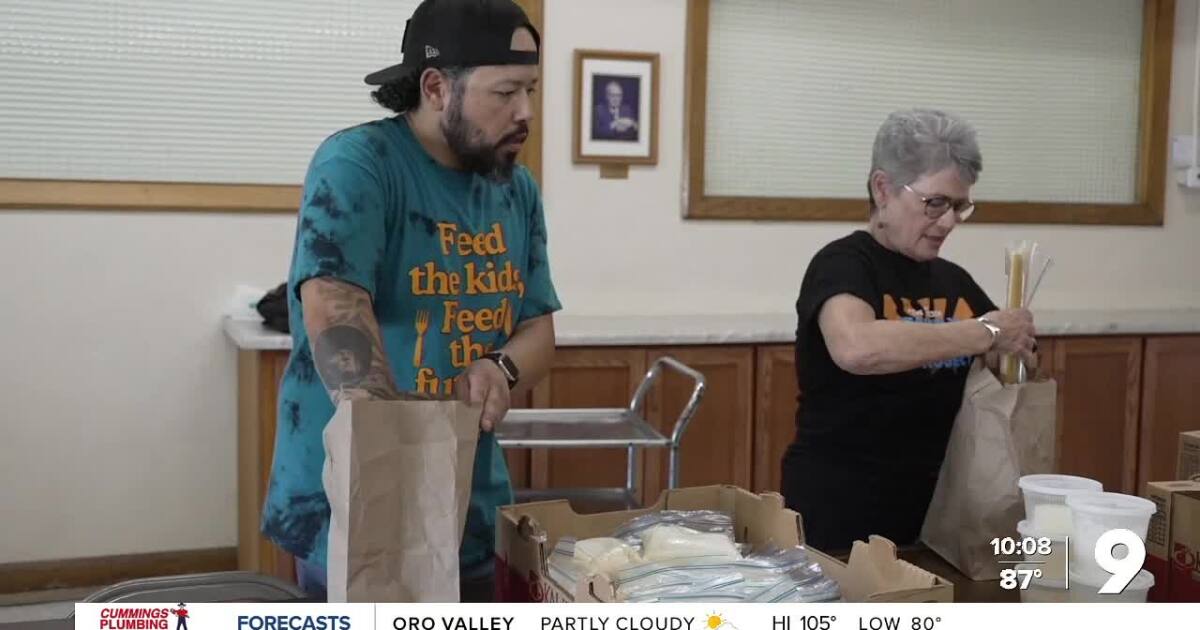The Tucson Family Food Project is making a significant impact on food insecurity among students in Tucson, Arizona, by providing free meal kits. Founded by Steven Cota-Robles, the initiative began four years ago in his kitchen and has now grown to serve over 200 children every Friday.
Cota-Robles’ personal experience with food insecurity inspired him to create this program. As a child, he often witnessed his mother skip meals to ensure he had enough to eat. He recalls how she would use inexpensive ingredients like potatoes to stretch meals, a lesson that shaped his understanding of nutrition and resourcefulness.
The organization assembles meal kits containing ingredients for simple, nutritious meals, such as fettuccine Alfredo. Each kit is designed to feed approximately four people, with some dishes like soup capable of serving up to eight. The goal is to provide students with meals for weekends when school meals are unavailable.
Last year, the Tucson Family Food Project distributed over 9,500 meal kits to students in grades six through eight. Cota-Robles emphasizes the importance of teaching kids how to cook, stating, “It turns on light switches for kids in their heads that when they make a recipe, they think, ‘If I can do that, what else can I do?’”
Volunteers play a crucial role in the organization’s success. Mary Lu Breschears, one of the 50 volunteers, noted that the community’s shared desire to help has fostered friendships among them. The project has expanded from just five volunteers at its inception, reflecting the growing support for its mission.
The organization is currently in discussions with the Tucson Unified School District to further expand its reach. Plans are underway to utilize school facilities for cooking and filming instructional videos, which will enhance the educational aspect of the program. By the end of the school year, Cota-Robles anticipates that the new facilities will allow them to serve approximately 500 children each week.
According to Feeding America, more than 40,000 children in Pima County experience food insecurity. This statistic underscores the importance of initiatives like the Tucson Family Food Project. Breschears highlights the broader impact of the program, stating, “They learn to cook, and then they help their families and they’ll help others as they grow and pass on what they know.”
Reflecting on the journey, Cota-Robles expressed gratitude for the progress made. “It’s surreal thinking where we are now to where we were when we started,” he said, as he packed the final boxes of meal kits, shifting pasta and cheese with a sense of accomplishment. The Tucson Family Food Project not only addresses immediate food needs but also empowers students with skills that will benefit them and their families in the future.
